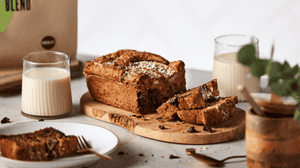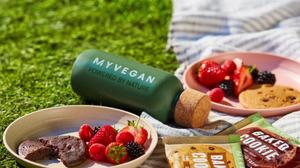
Still top of the wellness agenda, everyone from nutritionists to medics continue to expound the importance of a well-functioning gut. But could you be sabotaging your gut health without even knowing it? From inadequate amounts of fibre to a lack of the right supplements, it’s all too easy to throw your stomach out of whack. Keep scrolling to discover the top nutrition tips to improve your gut health...
What is gut health & why is it so important?
Our gut microbiome (the bacteria that live in our gut) are made up of over a trillion bacteria. These bacteria, both good and bad, are important for digestive functions. Bacteria plays a role in transit time of food, nutrient absorption and secretion, and helps to convert food into energy. It also provides immune function – a decreased gut microbiome increases susceptibility to foreign invasions of the gut tube, and allows for increased reproduction of pro‐inflammatory cells. Furthermore, the gut microbiome can also affect our mood, as it has a hugely influential role in the gut‐brain‐axis.

The signs of bad gut health
Most people don’t tend to pay attention to their gut until it starts to become less efficient; diarrhoea, constipation, persistent bloating and abdominal pains can all indicate things aren’t quite working as they should be and may indicate a reduced gut microbiome. Conditions such as coeliac disease can also cause widespread symptoms such as rashes, tiredness or nutrient deficiencies. Poor mental health status has been linked to an imbalance in the gut microbiome however, this is actually good news, as it means there is potential to improve or even reverse this condition by rebalancing our gut microbiome.
4 simple vegan‐friendly ways to improve your gut health
1. Add variety to your meals
The American Gut Project found that people that ate over 30 different plants per week had significantly greater diversity of their gut microbiome. Those that ate over 30 plants a week also had a decreased likelihood of antibiotic resistance. For this particular study, plants did not only mean fruit and vegetables; it also included wholegrains, nuts, seeds and spices. Adding some berries, crushed nuts and a tablespoon of seeds to your morning oatmeal can get you to 4 out of your weekly 30 in just one meal!
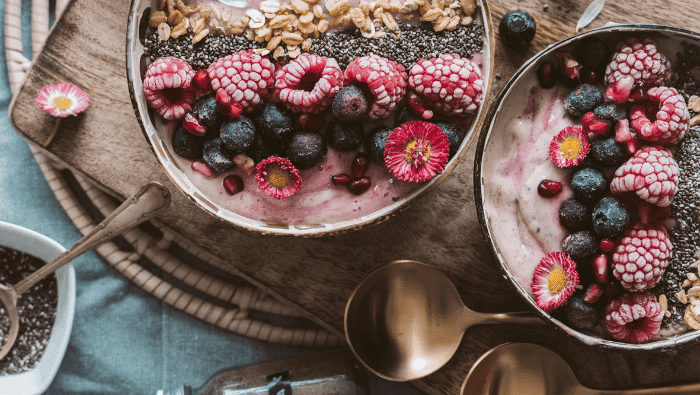
2. Get regular vitamin D
It is recommended that all people in the UK supplement with vitamin D between Oct – April, due to the lack of UVB sunlight. This type of sunlight is needed for our skin to produce vitamin D. However, research suggests vitamin D also plays an important role in gut health. Supplementation with vitamin D has been shown to improve diversity of the microbiome, which in turn leads to a healthier gut. Plus, a quick lunch break walk can help to boost vitamin D levels too.
3. Snack efficiently
Fibre is an all‐round hard hitter for improving health; it helps reduce cholesterol, can aid weight loss, and is vital for the absorption of vitamins and minerals. High dietary fibre intakes have been linked to more diverse gut microbiome, and it’s no co‐incidence that plant based foods are often high in fibre. Fibre cannot always be digested, but these types of insoluble fibre are important to aid microbial diversity. Including fibre in snacks is an easy way to boost intake, so why not have a delicious fibre‐filled snack like the Vegan Carb Crusher?
4. Try prebiotics
As a vegan, beans and legumes are often used as a protein source. However, they also provide an excellent source of fibre called ‘prebiotic’ fibre, which helps to feed the healthy gut bacteria. Prebiotics are not the same as probiotics – prebiotics are found naturally, without having to undergo the fermentation process (unlike probiotics). Other examples of prebiotics include garlic, onions, and dark leafy greens. Easy ways to increase your probiotic intake include adding greens to a smoothie, or simply adding some spices to your usual meal.
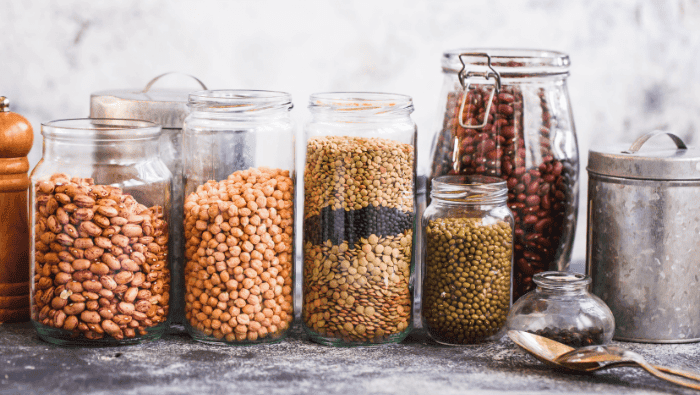
Can a vegan diet improve gut health?
Being vegan does not automatically improve gut health. However, vegans and plant‐based eaters are more likely to eat a diet higher in fibre, a more plant‐diverse diet, and include regular pre‐biotics within their meals. Making gradual changes to incorporate fruit, vegetables, grains and supplements can have a positive impact on not only your gut health, but your overall physical and mental health as well.
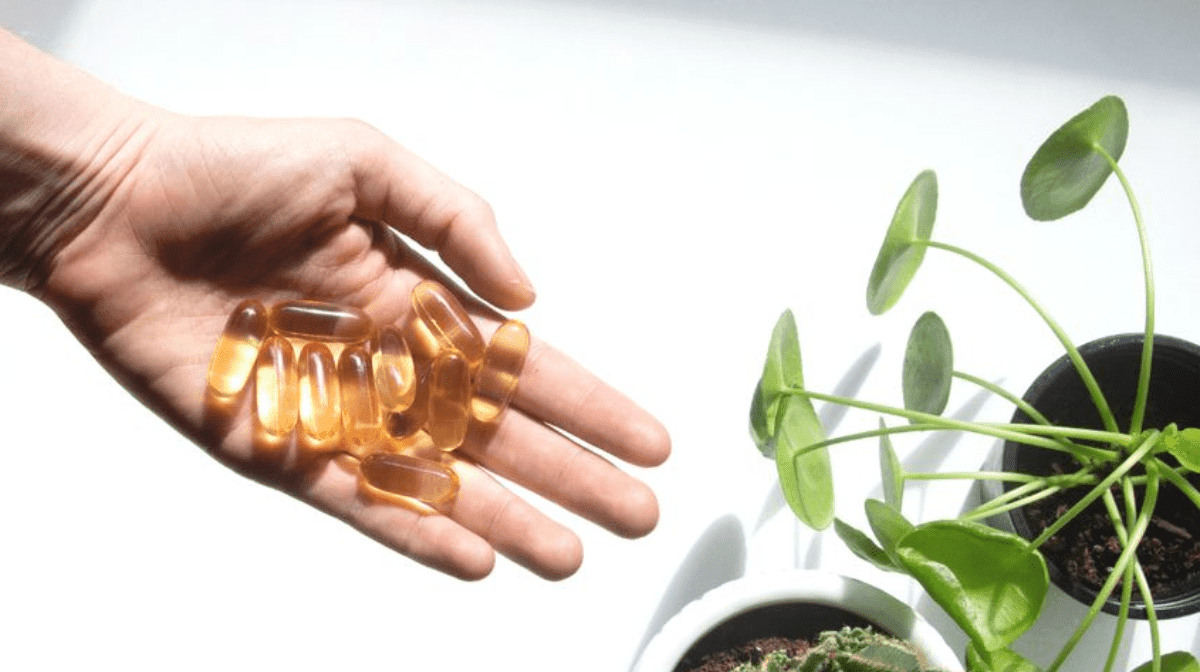
What Are The Best Vegan Omega-3 Sources?
Incorporate these vegan omega-3 sources into your diet to avoid a deficiency.
https://www.ncbi.nlm.nih.gov/pmc/articles/PMC3983973/
https://www.ncbi.nlm.nih.gov/pmc/articles/PMC4367209/
https://www.ncbi.nlm.nih.gov/pmc/articles/PMC5641835/
https://pubmed.ncbi.nlm.nih.gov/29795809/
https://www.nature.com/articles/s41598‐020‐77806‐4


